

Looking for addiction treatment in Richmond, Kentucky?
Louisville Addiction Center provides evidence-based outpatient programs (PHP, IOP, OP), medically supervised detox coordination, medication-assisted treatment, and wraparound services, and we serve Richmond residents with referrals, scheduling options, and local resource help.
Richmond residents often look beyond their city when they need a broader continuum of care, especially for programs that combine medical oversight, therapy, and coordinated follow-up.
Louisville Addiction Center’s Louisville clinic offers verified outpatient and day program services that many people from Richmond find helpful when local options feel limited. For someone weighing nearby choices, the practical benefits include access to PHP, IOP, OP, detox coordination, MAT, and family and holistic supports, all coordinated by a single clinical team.
That continuity matters: it reduces handoffs, keeps treatment goals aligned, and makes follow-up easier after you return home. If travel is a concern, admissions will talk through scheduling, telehealth follow-ups, and local referrals so care from Louisville is realistic for Richmond families.
Many searchers looking for drug rehabs in Richmond also compare these offerings to other drug rehab facilities in Kentucky when choosing care.

Detox support is centered on keeping you safe and comfortable, with close monitoring and care for withdrawal symptoms.
When it’s the right fit, medication-assisted treatment (MAT) can be added as part of a larger recovery plan. During intake, the admissions team will go over which medications are available and what options are best for your needs.
For Richmond residents seeking Richmond alcohol rehab or reviewing regional drug rehabilitation centers in Kentucky, we coordinate follow-up care, lab checks, and handoffs to local providers so transitions back to Madison County are safe and monitored.

When cravings keep overruling your best intentions, sheer willpower rarely carries you to the finish line. That’s why drug treatment in Louisville at Louisville Addiction Center pairs accredited clinicians with evidence-based therapies, turning the turmoil of active use into a clear, step-by-step path to lasting sobriety.

Louisville Addiction Center’s Partial Hospitalization Program (PHP) provides a higher level of daytime clinical care for people who need concentrated therapeutic support without overnight inpatient placement.
PHP combines group therapy, individual sessions, skills training, and psychiatric support to address stabilization and skills rehearsal. It’s often appropriate for people stepping down from more intensive medical care or for those who need a structured daytime program to gain momentum in recovery.
For Richmond residents, PHP can be scheduled in blocks that make travel manageable, and the clinical team coordinates step-down planning to IOP and OP so progress continues uninterrupted.
Our PHP provides structured clinical hours with group and individual work, plus psychiatric support, serving as a bridge for people stepping down from higher acuity care.

Our IOP delivers focused outpatient care in multi-day therapy blocks that combine group work, individual counseling, and practical skills training. Life skills, relapse prevention, and 12-step supports are part of the curriculum.
IOP is designed so you can keep work, school, and family responsibilities while getting steady clinical attention; morning and evening scheduling options make commuting from Richmond workable for many people.
If you live in Madison County and are comparing drug rehab in Richmond options, consider how regular IOP attendance plus one-on-one sessions can provide continuity without overnight stays. Admissions can explain how IOP fits into a local recovery plan and discuss travel-friendly scheduling for drug rehabs in Richmond referrals.
IOP lets you keep obligations while getting steady therapy mornings or evenings when the schedule allows; admissions can discuss options for Richmond residents.

Our OP is the lower-intensity, maintenance level of care focused on weekly individual counseling, periodic family sessions, relapse prevention planning, and coordinated referrals to community supports.
OP helps clients sustain gains made in higher-intensity programs and is commonly used as the main aftercare pathway after PHP or IOP. Telehealth check-ins are used when clinically appropriate to reduce travel burden for Richmond residents and to preserve continuity with the same clinical team.
OP also includes connections to local meetings, life skills groups, and outpatient partners so your recovery plan follows you home.
OP supports long-term recovery with weekly counseling, relapse planning, and connections to local supports, making it a practical choice for Richmond residents returning home.

At Louisville Addiction Center, we offer rehab for veterans in Louisville, Kentucky. As a veterans addiction treatment center, we provide TRICARE addiction treatment for veterans. Veterans have unique needs when it comes to substance abuse and mental health disorders. We understand that and offer specialized treatment.
Louisville Addiction Center provides integrated care for co-occurring conditions. Intake includes a co-occurring assessment, and services include psychiatric evaluation, trauma therapy, and a variety of evidence-based psychotherapies.
Core modalities include Cognitive Behavioral Therapy (CBT), Dialectical Behavior Therapy (DBT), trauma-focused approaches (EMDR when offered), motivational interviewing, and family therapy.
If you have co-occurring mental health needs, the clinical team builds combined plans so substance use and mental health symptoms are treated together.
Louisville Addiction Center provides referral support and local resource guidance rather than operating local sober homes. Admissions maintains vetted referral lists to help clients find sober living options in Richmond, KY, and community supports.
Aftercare typically follows a program sequence from higher-intensity treatment to OP or outpatient follow-up and then connection to sober living or community meetings when appropriate. The clinic assists with transportation tips, meeting schedules, and local outpatient partnerships.
For Richmond residents, admissions will share current vetted listings, alumni resources, and nearby meeting hubs in Madison County to facilitate a smoother transition from clinic care to local supports.
Admissions begin with a confidential intake assessment that reviews substance use history, medical needs, mental health concerns, safety, and social supports.
From that assessment, the clinical team recommends an appropriate level of care (detox coordination, PHP, IOP, or OP). It builds an individualized treatment plan with measurable goals, session frequency, and any recommended medication review.
If medication-assisted treatment or psychiatric follow-up is indicated, the team will arrange medication management and prescriber coordination. Continuity is a priority: the same clinicians coordinate handoffs so progress carries forward as care steps down.
Richmond residents are offered practical scheduling help like clustered appointments, evening IOP options, and telehealth follow-ups where clinically appropriate to make attending a Louisville clinic realistic.
For Richmond residents comparing drug rehab facilities in Kentucky, a benefits check and an assessment conversation will clarify costs, coverage, and next steps before treatment begins.

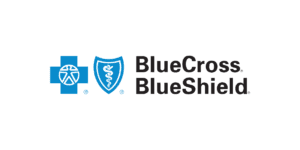
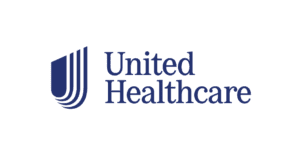

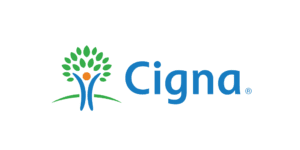

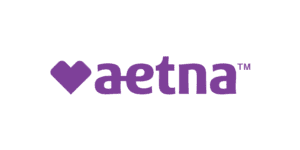
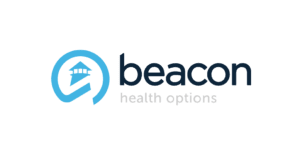
We reference local partners and resources to support Richmond residents returning home. Helpful connections include Madison County health services, regional recovery coalitions, and nonprofit partners offering peer supports and harm-reduction resources.
Admissions can share links to county meeting lists, local hotlines, and community partners (for example: Madison County health departments, recovery community organizations, and regional outpatient providers).
Ready to start? Call Louisville Addiction Center at 502-586-4554 for a confidential placement consult, benefits check, or to ask about accessing care from Richmond. Alternatively, you can complete the online contact form to request a call.
In Richmond, Kentucky, the journey to recovery from drug and alcohol addiction starts with the right support and resources. At the heart of effective rehabilitation, personalized treatment plans tailored to individual needs stand out as a guiding light. Whether you’re grappling with the decision to seek help or you’re a loved one watching the battle from the sidelines, understanding what Richmond, Kentucky drug and alcohol rehab resources are available can be a crucial first step.
The Richmond, Kentucky Drug and Alcohol Rehab Resources is committed to treating addiction through strong community support and effective recovery programs. Hence, recognizing the particular needs of our community is critical. Therefore, we aim to provide targeted resources that address these challenges.
Kentucky Access to Recovery (KATR), managed by Fahe, supports individuals with substance use disorders. Thus, offering comprehensive assistance such as recovery housing, transportation, employment support, and basic needs. It collaborates with local agencies and community organizations to ensure effective and accessible recovery services. The program serves 34 counties in Kentucky and focuses on providing the necessary resources to aid individuals in their recovery journey, though it does not cover the cost of treatment itself. Contact them at 859-986-2321.
Madison County Health Department: This department offers health services that include substance abuse prevention programs, mental health resources, and community education initiatives. Moreover, they aim to improve public health and safety through outreach and support services. Contact them at 859-623-7312.
Kentucky River Foothills Development Council: This council provides various community services, including substance abuse prevention and recovery programs, mental health support services, and crisis intervention. Their goal is to help individuals achieve stability and improve their quality of life. Contact them at 859-624-2046.
Rehabilitation centers offer a structured environment crucial for overcoming drug and alcohol addiction. These facilities provide a safe and supportive space where individuals can focus entirely on their recovery, away from triggers and negative influences.
In Richmond, Kentucky Drug and Alcohol Rehab Resources individuals can gain access to professional care and support from experienced staff who understand the complexities of addiction. Moreover, the sense of community and mutual support found in rehab fosters motivation and resilience.
Additionally, rehab centers often offer resources for aftercare, ensuring that individuals continue to receive support and guidance once they return to their everyday lives. This comprehensive approach significantly increases the chances of achieving and maintaining sobriety, ultimately leading to a healthier, more fulfilling life.
The journey to recovery can be daunting, but you don’t have to face it alone. At Louisville Addiction Center, we offer compassionate, personalized treatment plans designed to address your unique needs. From individual therapy to holistic treatments and family support, our dedicated team is here to help you reclaim your life. Take the first step towards a healthier future with Richmond, Kentucky Drug and Alcohol Rehab Resources.
Reach out to us today and let us guide you on your path to recovery. Your healing starts now.
Get Family Support Now
We understand addiction affects the whole family. Our comprehensive family program helps rebuild trust and restore relationships.
Weekly Family Therapy Sessions
Educational Workshops
Support Groups
Communication Skills Training
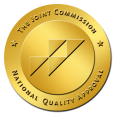

Centers for Disease Control and Prevention. (2025, June 9). Heroin. Overdose Prevention. U.S. Department of Health & Human Services. Retrieved August 22, 2025, from https://www.cdc.gov/overdose-prevention/about/heroin.html
Centers for Disease Control and Prevention. (2025). Understanding the opioid overdose epidemic. Overdose Prevention. U.S. Department of Health & Human Services. Retrieved August 22, 2025, from https://www.cdc.gov/overdose-prevention/about/understanding-the-opioid-overdose-epidemic.html
Centers for Disease Control and Prevention, National Center for Health Statistics. (2025, March 17). FastStats – Drug overdoses. Retrieved August 22, 2025, from https://www.cdc.gov/nchs/fastats/drug-overdoses.htm
Kentucky Office of Drug Control Policy & Kentucky Injury Prevention and Research Center. (2025). 2024 Kentucky drug overdose fatality report. Commonwealth of Kentucky. Retrieved August 22, 2025, from https://odcp.ky.gov/Reports/2024%20Drug%20Overdose%20Fatality%20Report.pdf
Centers for Disease Control and Prevention. (2025, August 7). SUDORS dashboard: Fatal drug overdose data. U.S. Department of Health & Human Services. Retrieved August 22, 2025, from https://www.cdc.gov/overdose-prevention/data-research/facts-stats/sudors-dashboard-fatal-overdose-data.html
Kentucky Justice & Public Safety Cabinet. (2023). Gov. Beshear: Overdose deaths decline for second-straight year. Commonwealth of Kentucky. Retrieved August 22, 2025, from https://justice.ky.gov/News/Pages/24overdosefatalityreport.aspx



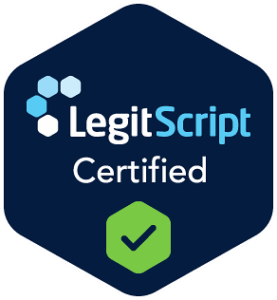
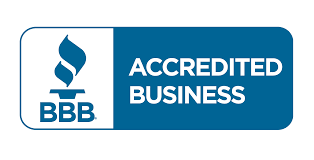




Centers for Disease Control and Prevention. (2025, June 9). Heroin. Overdose Prevention. U.S. Department of Health & Human Services. Retrieved August 22, 2025, from https://www.cdc.gov/overdose-prevention/about/heroin.html
Centers for Disease Control and Prevention. (2025). Understanding the opioid overdose epidemic. Overdose Prevention. U.S. Department of Health & Human Services. Retrieved August 22, 2025, from https://www.cdc.gov/overdose-prevention/about/understanding-the-opioid-overdose-epidemic.html
Centers for Disease Control and Prevention, National Center for Health Statistics. (2025, March 17). FastStats – Drug overdoses. Retrieved August 22, 2025, from https://www.cdc.gov/nchs/fastats/drug-overdoses.htm
Kentucky Office of Drug Control Policy & Kentucky Injury Prevention and Research Center. (2025). 2024 Kentucky drug overdose fatality report. Commonwealth of Kentucky. Retrieved August 22, 2025, from https://odcp.ky.gov/Reports/2024%20Drug%20Overdose%20Fatality%20Report.pdf
Centers for Disease Control and Prevention. (2025, August 7). SUDORS dashboard: Fatal drug overdose data. U.S. Department of Health & Human Services. Retrieved August 22, 2025, from https://www.cdc.gov/overdose-prevention/data-research/facts-stats/sudors-dashboard-fatal-overdose-data.html
Kentucky Justice & Public Safety Cabinet. (2023). Gov. Beshear: Overdose deaths decline for second-straight year. Commonwealth of Kentucky. Retrieved August 22, 2025, from https://justice.ky.gov/News/Pages/24overdosefatalityreport.aspx









Get Family Support Now
We understand addiction affects the whole family. Our comprehensive family program helps rebuild trust and restore relationships.
Weekly Family Therapy Sessions
Educational Workshops
Support Groups
Communication Skills Training


Hear directly from those who have walked the path to recovery. Our patients’ stories highlight the compassionate care, effective programs, and life-changing support they’ve experienced. Let their journeys inspire you as you take your first steps toward healing.
Louisville Addiction Center is helping people in Kentucky overcome addiction and mental health challenges.